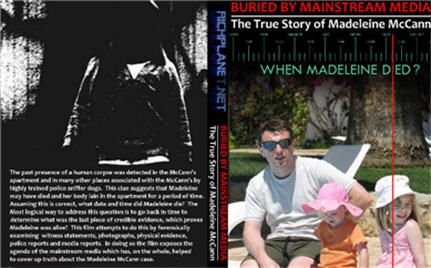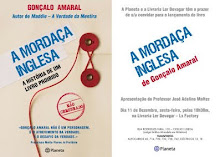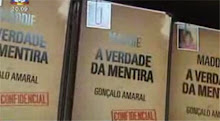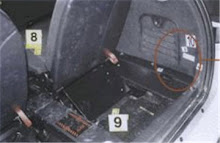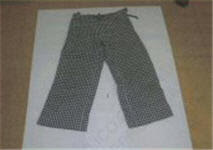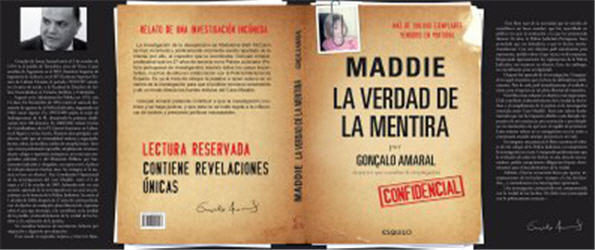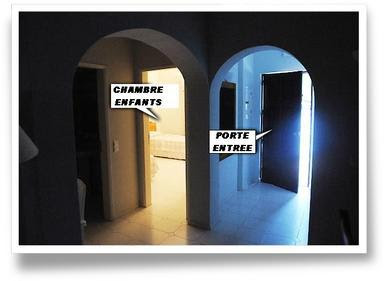
CONTRADICTIONS OR CLUES
How do you explain the differences, from one to another, between the witness statements? What comes immediately to mind is that the parents did not want to be thought of as irresponsible adults. What would people think of these tourists - doctors moreover - who leave their very small children alone in their bedroom, while they dine amongst friends - a well-watered meal, since they usually consume eight bottles of wine, according to witness statements. They were bound to be all the more panic-stricken, given that they were abroad and going to have to deal with a police force and a law which they knew nothing about. So, it was important for them to maintain that the children were safe.
However, none of the buildings was equipped with a security door: on the contrary, it was simple wood-paneled doors equipped with ordinary locks. The Oldfield and O'Brien families, who also occupied ground floor accommodation, considered their children to be in a safe place since all the doors were locked. They forgot about the patio doors opening onto a little balcony at the rear of the building, which they could not watch from their table. The McCanns did not think any differently, even though the patio door wasn't locked and that, from the restaurant, as we have already mentioned, the building could barely be made out...That means that anyone could have got into their apartment without being seen. Kate Healy has always insisted that she went into her apartment the back way while Gerry says he went through the main door, the one at the front, which he opened with his key. Jeremy W., a tourist, who was returning from a walk with his baby, confirms having spoken to him for a few minutes while he was coming out of his apartment by the garden gate, at the rear. Not only is this detail important, but it becomes crucial in understanding what happened during the night of May 3rd.
- Why does Gerald insist that he went in the front way when it's quicker to go the back way?
- To show that his children were safe.
- Matt Oldfield assures us that the first time he went to check on the children, he contented himself with listening at the windows. He didn't hear anyone crying.
- His meal is going cold and, instead of using the back way for speed, he makes this long detour to listen at the windows at the front...?
- Yes, but don't forget that, apart from the McCanns, the others had locked their patio doors, so he would inevitably have had to go round.
- But when Matt goes with Russell, he enters his apartment round the front, comes out, walks round the building and goes into the McCanns' the back way.
- Gerald should have given him his key. He would have gone in the front way and left by the back way, thus saving a good hundred metres.
Besides these inconsistencies, several facts place in doubt the veracity of the witness statements - and the very existence of an abductor.
Everybody accessing the block from the front sees the windows of 5A, 5B and 5D very clearly: they're all on the same level, and are relatively close together. If Jane came across the abductor in the street, as she claims, that means that he was no longer in apartment 5A. As a consequence, the window which Kate says she found wide open, necessarily was at that time. But Jane was not aware of this detail and she never spoke of it. When she went back to her apartment to replace her partner Russell sitting with their daughter, she had another opportunity to notice it. But, once again, she noticed nothing.
Jane is certainly not very observant. This remark goes equally for her friends Matt and Russell: both take the same route, alongside all those windows without noticing that one of them is wide open.
Someone has to have lied. Kate Healy's statements leave a lot to be desired. This is the gist of it: she goes in, notices Madeleine's absence, the open window, the shutter raised and the curtains moving in the breeze. OK. The classic scenario of an abduction by an individual having gone in through the window, which is to some extent corroborated by Jane Tanner, since the man she saw was coming from the car park, just in front of the window in question.
Looking at what follows: Kate looks for Madeleine all over the apartment and, not finding her, goes running towards the Tapas, shouting, "We let her down!" Looking a little more closely at the facts.
The mother has just discovered:
- that there are only two children in the bedroom;
- that the window is wide open.
And she goes back to the Tapas leaving the twins alone again? In a bedroom with windows wide open, at night, when it's cold and an abductor is hanging about?
Such behaviour is hardly credible and difficult to justify, even in the grip of panic. A mother would not react like that, she would protect her two other children and not abandon them in their turn. She could have shouted help from the veranda to alert her husband and her friends. She could also have called him on his mobile phone...We find no plausible explanation for her conduct.
Going back to the window, there is no doubt that it was opened at some point. When Amy T., one of the workers from the nursery, heard the alarm drawing attention to the disappearance shortly after 10pm, she went to apartment 5A. She noted that the window was just half-open and the shutter was raised. The twins were still asleep.
(Original translation by AnnaEsse here)
Chapter 14 Madeleine's parents call attention to her death






